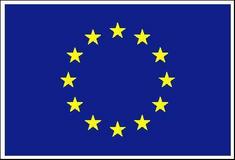 Sometimes if you fear something intensely or hate something very strongly, it can cloud your otherwise excellent judgement and analytical foresight. That seems to be happening to many euro-sceptics when they talk or think about the Lisbon Treaty and the forthcoming second Irish referendum. They do not like the treaty and so will find it almost unthinkable that the Irish will vote yes. But a ‘yes’ vote looks like the most likely scenario.
Sometimes if you fear something intensely or hate something very strongly, it can cloud your otherwise excellent judgement and analytical foresight. That seems to be happening to many euro-sceptics when they talk or think about the Lisbon Treaty and the forthcoming second Irish referendum. They do not like the treaty and so will find it almost unthinkable that the Irish will vote yes. But a ‘yes’ vote looks like the most likely scenario.
That will mean that the British Conservatives have to be less mealy-mouthed about their post-referendum strategy; if the treaty is ratified will they try to re-open the document if they win power or let sleeping dogs lie? The answer will in many ways determine the relationship between a future Conservative prime minister and particularly his German and French counterparts, but also his relationship with the Tories’ eurosceptic “base”. David Cameron has warned that he would “not let matters rest” regarding the treaty. But he has not pledged to hold a referendum if Lisbon has been ratified by all EU states.
Ireland will vote again on Oct. 2 after winning concessions on key Irish policy areas including military neutrality and retaining an EU commissioner.The latest opinion polls show a majority now plan to vote “Yes” — many convinced by the need for EU support in Ireland’s worst downturn on record. In June, leading Irish bookmaker Paddy Power recorded “significant” levels of betting from punters across Europe, sending odds on a Yes vote firming from 4-5 to 1-6 with a No vote plummeting to 7-2.
The reason for the increased chances of a ‘yes’ may also be found in the weakening of the ‘no’ campaign. During the run up to the last Lisbon Treaty referendum, Declan Ganley’s Libertas group was among the leading voices campaigning against the treaty. But Ganley subsequently failed to win a seat in the European Parliament. Though his pan-European anti-Lisbon Treaty party claimed it could win up to 100 seats in the European parliament, it won just one mandate, that of sitting French MEP Philippe de Villiers, whose Mouvement pour la France actually suffered a severe loss, reducing its overall number of MEPs from three to one. In Germany, a country Ganley had pinpointed as a prime target Libertas’s partners the Party for Work, Environment and Family did not even reach the 3% electoral threshold. Ganley has now announced his withdrawal from public life.
With Libertas’ failure, an alliance of left-leaning groups are populating the anti-Lisbon side in the run-up to the second referendum, but this has only brought the business community out in force, including in the last couple of days Intel and Ryanair. So with the Lisbon Treaty moving closer, the Conservatives may have to be clearer about their strategy – and risk alienating key constituencies either domestically or internationally.






Comments